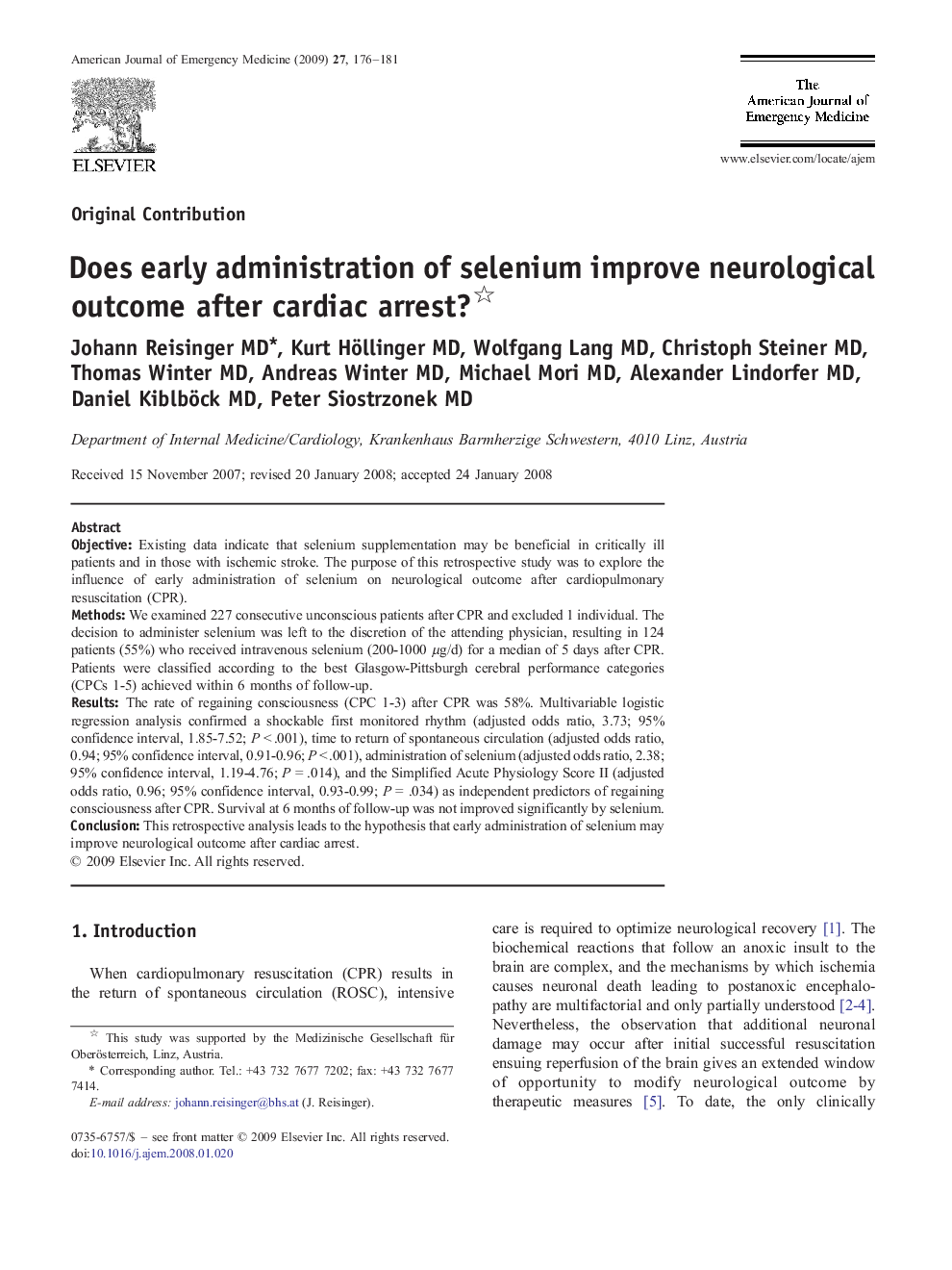| کد مقاله | کد نشریه | سال انتشار | مقاله انگلیسی | نسخه تمام متن |
|---|---|---|---|---|
| 3227408 | 1588169 | 2009 | 6 صفحه PDF | دانلود رایگان |

ObjectiveExisting data indicate that selenium supplementation may be beneficial in critically ill patients and in those with ischemic stroke. The purpose of this retrospective study was to explore the influence of early administration of selenium on neurological outcome after cardiopulmonary resuscitation (CPR).MethodsWe examined 227 consecutive unconscious patients after CPR and excluded 1 individual. The decision to administer selenium was left to the discretion of the attending physician, resulting in 124 patients (55%) who received intravenous selenium (200-1000 μg/d) for a median of 5 days after CPR. Patients were classified according to the best Glasgow-Pittsburgh cerebral performance categories (CPCs 1-5) achieved within 6 months of follow-up.ResultsThe rate of regaining consciousness (CPC 1-3) after CPR was 58%. Multivariable logistic regression analysis confirmed a shockable first monitored rhythm (adjusted odds ratio, 3.73; 95% confidence interval, 1.85-7.52; P < .001), time to return of spontaneous circulation (adjusted odds ratio, 0.94; 95% confidence interval, 0.91-0.96; P < .001), administration of selenium (adjusted odds ratio, 2.38; 95% confidence interval, 1.19-4.76; P = .014), and the Simplified Acute Physiology Score II (adjusted odds ratio, 0.96; 95% confidence interval, 0.93-0.99; P = .034) as independent predictors of regaining consciousness after CPR. Survival at 6 months of follow-up was not improved significantly by selenium.ConclusionThis retrospective analysis leads to the hypothesis that early administration of selenium may improve neurological outcome after cardiac arrest.
Journal: The American Journal of Emergency Medicine - Volume 27, Issue 2, February 2009, Pages 176–181